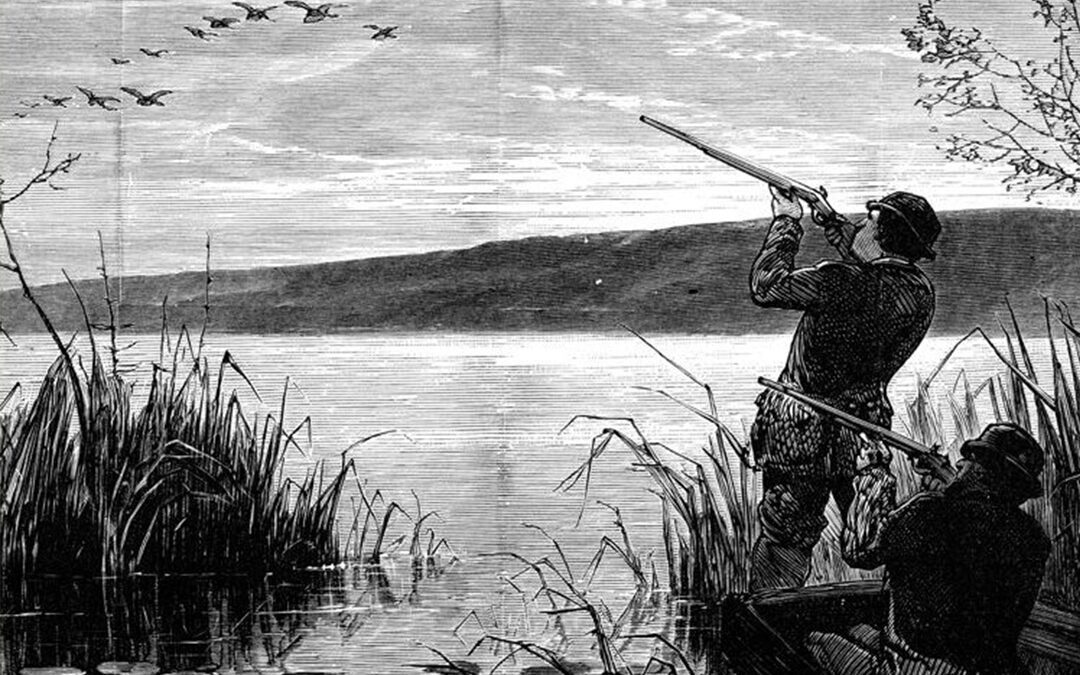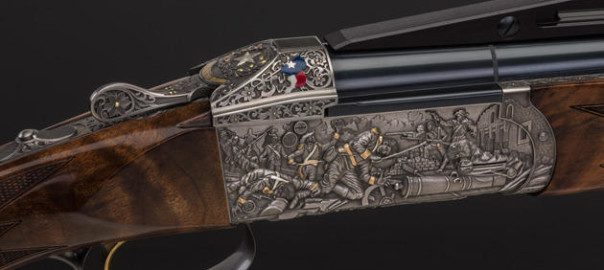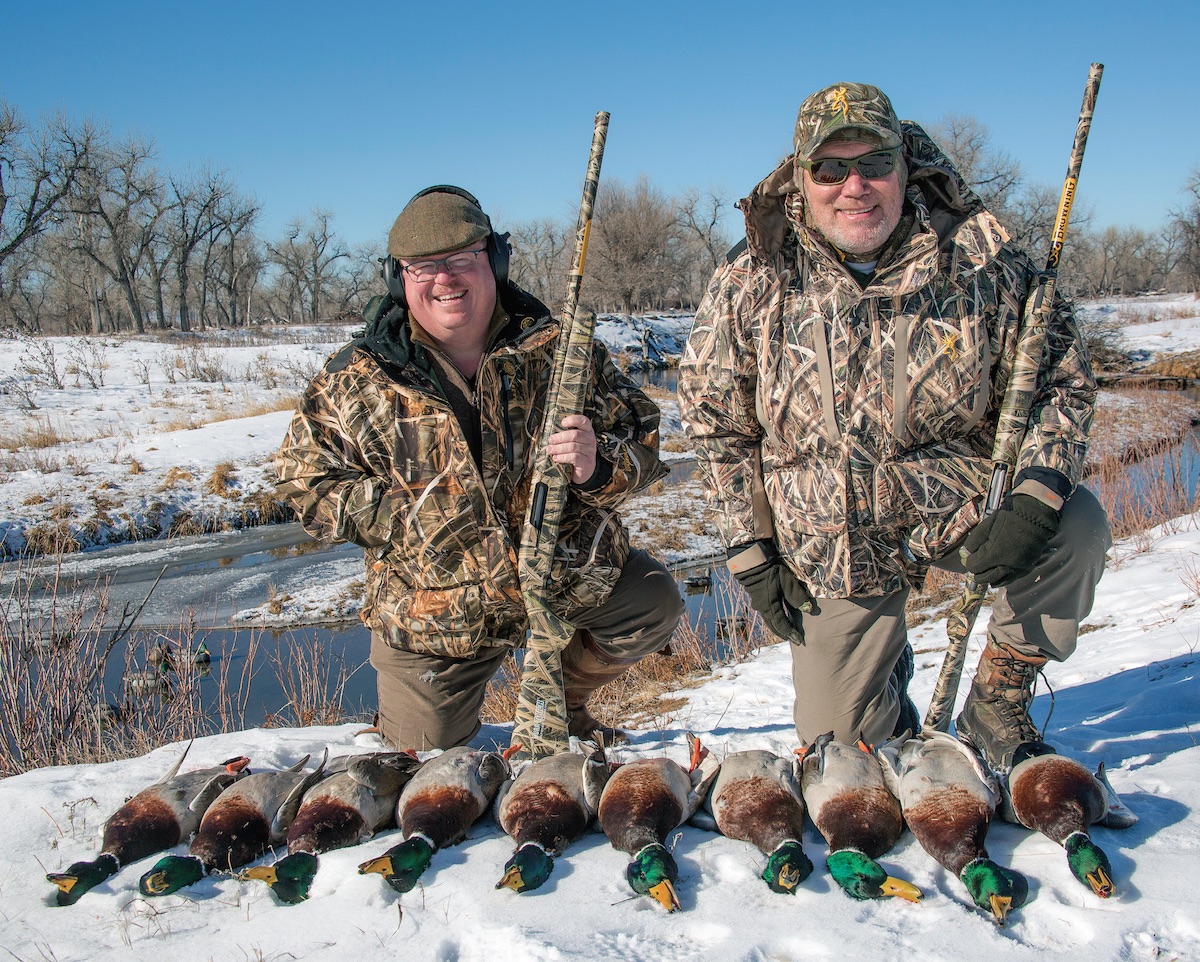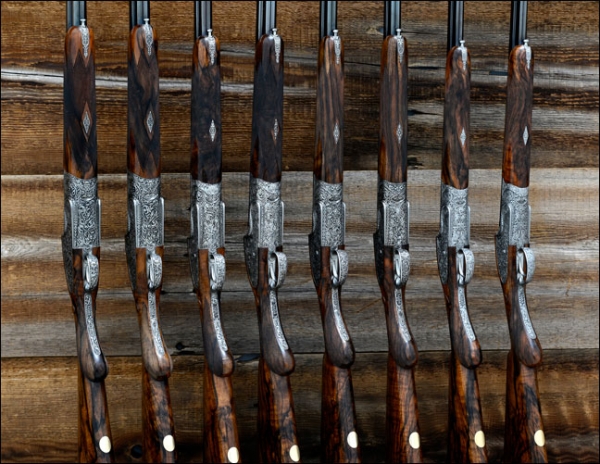The Civil War was looming on the horizon, but Percy Cushing was too busy filling his boat with ducks to worry about politics or war. “A Market Gunner’s Diary” was the result, an excerpt of the actual diary which appeared in Outing magazine in 1913.
OCTOBER 3
Weather cool and cloudy. Wind southeast. Good many black duck in the bay this week. No broadbill yet to amount to much. Most of the ducks are south of the islands. Henry Drake is going with me tomorrow. It looks like a good day. Blowing, maybe, two reefs now. Surf sounds very plain. Wind will hold east. We will go to Sand Point Thatch, the wind holding. Joshua Homan says duck are bringing 55 cents a pair in market. My contract with Uncle Wanser is 50 cents, steady through the year.
OCTOBER 4
Tired tonight. Blew gale from eastward. Hard work packing up stool. Kill, 68 black duck, six gray duck; 74 total. Fair for early season. Got 52 this day last year. The boys are picking birds now. Wanser will be here by sun-up. It was a good day to gun. Henry had his new stool. We rowed across from Ben Powell’s creek. Got to Sand Point near two o’clock; tide was flood at daylight. Henry went over his boots and got wet. The first birds came early. It was too dark to see till they lit in the stool.
I told Henry to take what were bunched to the left. I took a dozen to the right. I shot one charge with the big gun (a muzzleloading 8-bore). Could not see to shoot again. Henry shot twice with his 10-bore. We picked up nine. I got six, Henry three.
They began to come thick when day made. Henry and I got six out of a bunch of gray duck that lit.
We got 14 out of a bunch of black duck. Not very good. They lit in the stool. We let them swim together. If Henry had a big gun we would have done better. He pushed out to pick up, and a flock came in just then. He lay down in his skiff and I shot. Got five out of that.
Henry got back with two cripples and picked up five on the way. After that we didn’t do much for a while. Only single birds and pairs came, and we didn’t shoot much. Powder’s too high.
Along about ten o’clock I saw a big flock come over the beach. They saw the stool and pitched. We let them light, but they wouldn’t swim together. We waited ten minutes before they got right. There must have been 75. When they did get right, Henry whistled and they stuck their necks up. Then we shot. I picked up 19. We got a few more and came home. Birds fat and heavy.
OCTOBER 5
Uncle Wasner took birds at daylight. We got $18.20* in all—50 cents a pair for black duck, 40 for gray duck.
Poor day today. No wind and warm. I went out in afternoon but only got four pair. We need a storm.
NOVEMBER 1
Blowing from east for two days, and rain. Bay full of water. Joe Powell came in today with 41 broadbill and three redheads. Henry and I going tomorrow.
NOVEMBER 2
We fixed in Floyd’s cove today. Wind northwest, moderate. Air chilly. We had a good day, 108 birds, mostly broadbill. I lay in the battery first with both guns. Henry tended. I kept him busy picking up. I shot the small gun most of the time, saving the old gun for flocks. The birds stooled like old hens. I shot bad sometimes. Got too many cripples. That last keg of powder is weak, or I cut my wads too small. It don’t kill like it ought to.
Henry did better. He killed them. I knew it was that powder. Tired tonight and my head aches.
NOVEMBER 8
Biggest day we ever had. I’m worn out. The boys have begun to pick in the kitchen. They’ve got to be through come sun-up. Uncle Wasner’ll be here then. They got a job. I sent Winnie for the neighbors to help. Jimmie Chichester and his ma and sister are coming. So are Sol Wick’s boys. Also Jeb Hendrickson. They’re fast pickers, and I got to pay them a penny a head. They got 365 birds to pick before daylight and Uncle Wasner gets here. It was the biggest we ever did in one day. Henry helped but I did most of it. He tended.
We fixed on Pelican Bar. The wind was to the west and blowing two reefs. The birds came up over East Island flat steady. I had both guns. If I could have shot faster I’d had half as many again. They kept coming right in all the time I was sitting up loading. Loaded first one gun then the other, so they would keep cool. I couldn’t get the shot wadded before I had to shoot at birds in the stool.
I shot pretty good. They came up against the blow low and willing to light. I let them. Some big flocks coming in from outside came out of the air but were so scattered I couldn’t do much with them.
It began to snow. The big gun was so hot the snow fizzed on it. It burned my hand through my mitten. Henry brought more powder and bags of shot and his gun. The last keg was strong. I killed four brant at 20 rod. Most were broadbill, a few redheads. Very few shelldrake or coot. Glad of that.
We lost a good many cripples; maybe 30. The water was so rough Henry couldn’t see them when they flatted (skulked).
I am tired out and sore all over. Head aches and my shoulder pains a great deal. Jess (his wife) is making a tobacco poultice. Going to rest tomorrow.
NOVEMBER 10
Raw and cloudy. We took the feathers up to Smith’s store in the wagon and traded for shot and a keg of powder and a ham and salt pork. Also flour and sugar. Jess saved enough for a new feather bed for Tom (their eldest son, then 17). What we took up filled Smith’s feather bin almost full. Shoulder still lame.
Powell and the Hendrickson boys went east today for geese. They headed for Cedar Island Cove. Uncle Wasner took what we killed to the city yesterday with two wagons—170 pair of broadbill at 30 cents a pair, $51; four pair of redhead at 50 cents, $2; two pair brant at 60 cents, $1.20; six pair coot at 19 cents, 60 cents; one pair old squaw at five cents, five cents.
Total, $54.85. Wish I could do that every week.
* Adjusting for the U.S. inflation rate, they would have made around $1,700 in modern times.
Cover image: Andi Pantz/iStock




